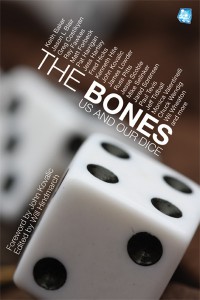Hey everyone,
Wanted to write you a letter today that allows me to clear a few things up. I’m sure that many of you know that when you’re a creative person, you live your life on a roller coaster. For many people, the employment outlook isn’t great; this is especially true for creative people. Several writers and artists I know, including myself, do not have a full-time job right now. Many businesses are either not hiring or they are taking the opportunity to give their regular workers overtime. The people that I do know that are working are swamped, as businesses are trying to cut costs to stay afloat. Sometimes, this means that creators are required to act like production monkeys, which means that the quality of the work suffers. In many cases, I’m hearing from other writers that they are creating content for the sake of producing content so their other work is suffering, too.
Age also seems to be a factor in today’s market; most people I know either have an older relative or a parent that’s out of work. After several conversations with some state and private agencies around town, applications for positions have tripled and recruiters are seeing that a lot of overqualified applicants are vying for low-paying jobs. As you can imagine, it’s an employer’s — rather than an employee’s — market.
On the publishing front, which is not a full-time, viable financial venture for over ninety percent of the authors out there (including myself) — the news is grim. Many small press publishers are going out of business and the larger publishers are focusing more on their heavy hitters. So authors who write books that sell a steady number of copies, dubbed the “mid-list” authors, are finding that their contracts are drying up. Right now, I’m still a small press author, so the news about the disappearing mid-list is pretty depressing. (For one example, read: Mid-List Authors Find Homes at Indie Presses.) I’ve tabled two half-finished novels and have been focusing on other opportunities because I’m not very optimistic about my chances.
To be clear: I feel I made a mistake when I wrote my “Happy Thanksgiving” post and wound up deleting it, because I mentioned I was thankful for all the bad experiences that I’ve had this year without really explaining why. Sure, I talked about how you can’t have the good without the bad, but I didn’t go into this level of detail. Taken out of context, it sounded a little bitter to me, which is not accurate. The market does suck, but it will get better. It always does.
Fortunately, I am part of a community of writers and artists who either have experienced what I’ve been going through or know someone who has. My support network is very strong and invaluable, but having that support is not a guarantee that things will change. I have to make very careful decisions about how I spend my time, but I also need to be brave and take risks. I have to finish those novels, even though I don’t think I have a chance in hell of getting them published. I also have to forget about how clean our house is and focus on writing another story or submitting another resume.
Right now, I am slowly closing the door on an unfortunate chapter in my career, but I’m plotting out a new one. I hate sharing bad news because things change. What non-creative people don’t realize, is that being creative means that you have a different life path than most people. Sometimes it’s hard to express that in a post without coming across as being bitter or negative, but I’ve always been an opportunist and a pragmatist. Sometimes those opportunities work out, and sometimes they don’t.
This is my story. I hope that by sharing it, I inspire you to get off your butt and focus on your own. I wish you the best of luck and encourage you to reach out to people and explore every option you have. As always, I hope that you lift your head up and realize how valuable you are. Keep writing, keep telling stories and never, ever give up. I know I won’t.
– Monica
 Hi everyone, I am pleased to announce that Scenes of the Embrace was just released from White Wolf Publishing for only $2.99. This was a stand-alone project that I had worked on with developer Eddy Webb, who was the developer.
Hi everyone, I am pleased to announce that Scenes of the Embrace was just released from White Wolf Publishing for only $2.99. This was a stand-alone project that I had worked on with developer Eddy Webb, who was the developer. 
